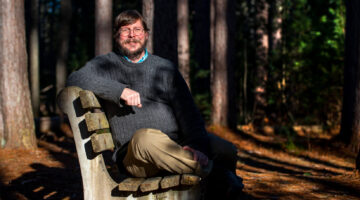Mayewski continues climate change conversation on ‘The Maine Question’
What’s it like living and doing research in the world’s most remote locations? Listen as Ron Lisnet continues his conversation with Paul Mayewski, director of the University of Maine Climate Change Institute. In Part 2 of the two-part podcast “The Maine Question,” Mayewski recalls drilling ice cores on glaciers and living in a tent for […]
Read more


